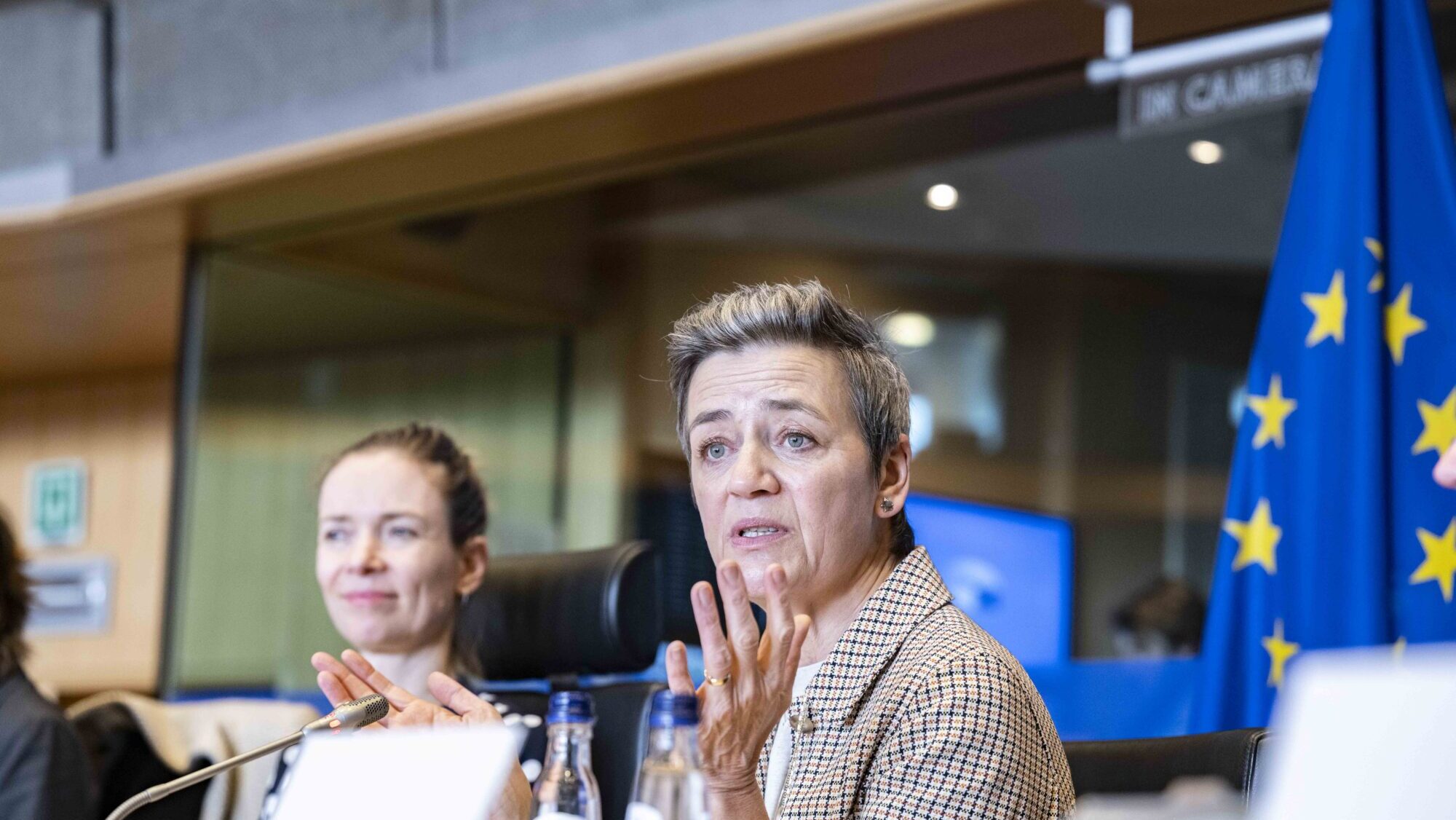
Margrethe Vestager, Executive Vice President of the European Commission for a Europe Fit for the Digital Age
Photo: Emilie GOMEZ © European Union 2023 – Source : EP
California-based technology corporation Apple will delay rolling out its new artificial intelligence technology for the European Union market until 2025 at the earliest. This is due to regulatory uncertainties that would require the app’s compatibility with rival products.
Following tensions with the European Commission over antitrust investigations and tax disputes, Apple announced Friday that it will postpone launching three new AI assistive features (Phone Mirroring, Share Play Screen Sharing enhancements, and Apple Intelligence) due to alleged security concerns.
Brussels regulators claim Apple has fallen foul of the Digital Market Act (DMA), a 2022 EU regulation that imposes interoperability requirements on platforms while also prohibiting self-preferencing practices.
Apple has been investigated by the EU since March and could face fines of up to 10% of its annual revenue for non-compliance. Margrethe Vestager, the EU’s top EU competition mandarin, gloated to the press about the importance of EU regulators coming down hard on tech firms.
Fred Sainz, Apple company spokesman, said,
Specifically, we are concerned that the interoperability requirements of the DMA could force us to compromise the integrity of our products in ways that risk user privacy and data security.
While Apple has stated that it aims to open a dialogue with the Commission to resolve the matter, the dispute looks set to grow more complicated. News arrived Monday morning of a fresh EU probe being launched into the fees charged to developers. Meanwhile, the Financial Times reported that Facebook and Instagram owner Meta could be hit with a similar challenge under the DMA in the coming weeks.
Apple has been in a long-running legal battle with Brussels over its Ireland-based tax arrangements in the EU’s Court of Justice, and was on the receiving end of a €1.8 billion fine for allegedly impeding the Sweden-based music platform Spotify in March of last year.
A mixture of General Data Protection Regulation (GDPR) and anti-competition rules has strangled the flow of American-imported AI products into the shared EU market in recent years, including Google Duplex and Amazon’s facial recognition platform Rekognition. Italy also set a precedent by banning ChatGPT in March of last year owing to privacy concerns.
According to experts, the EU faces the prospect of becoming an innovation coldspot due to the legislative arrival of the AI Act, designed by Brussels to give the bloc a first-mover advantage in regulating the emergent sector. The AI Act imposes heavy restrictions on firms on the basis of the wider risk they allegedly pose to society.Aside from the DMA and the AI Act, the EU has been at loggerheads with technology platforms over the new Digital Services Act (DSA) in recent months. This demands major companies align their content regulation with EU and national regulators in what is being viewed by many as a way to impose European hate speech regulations on the internet.
